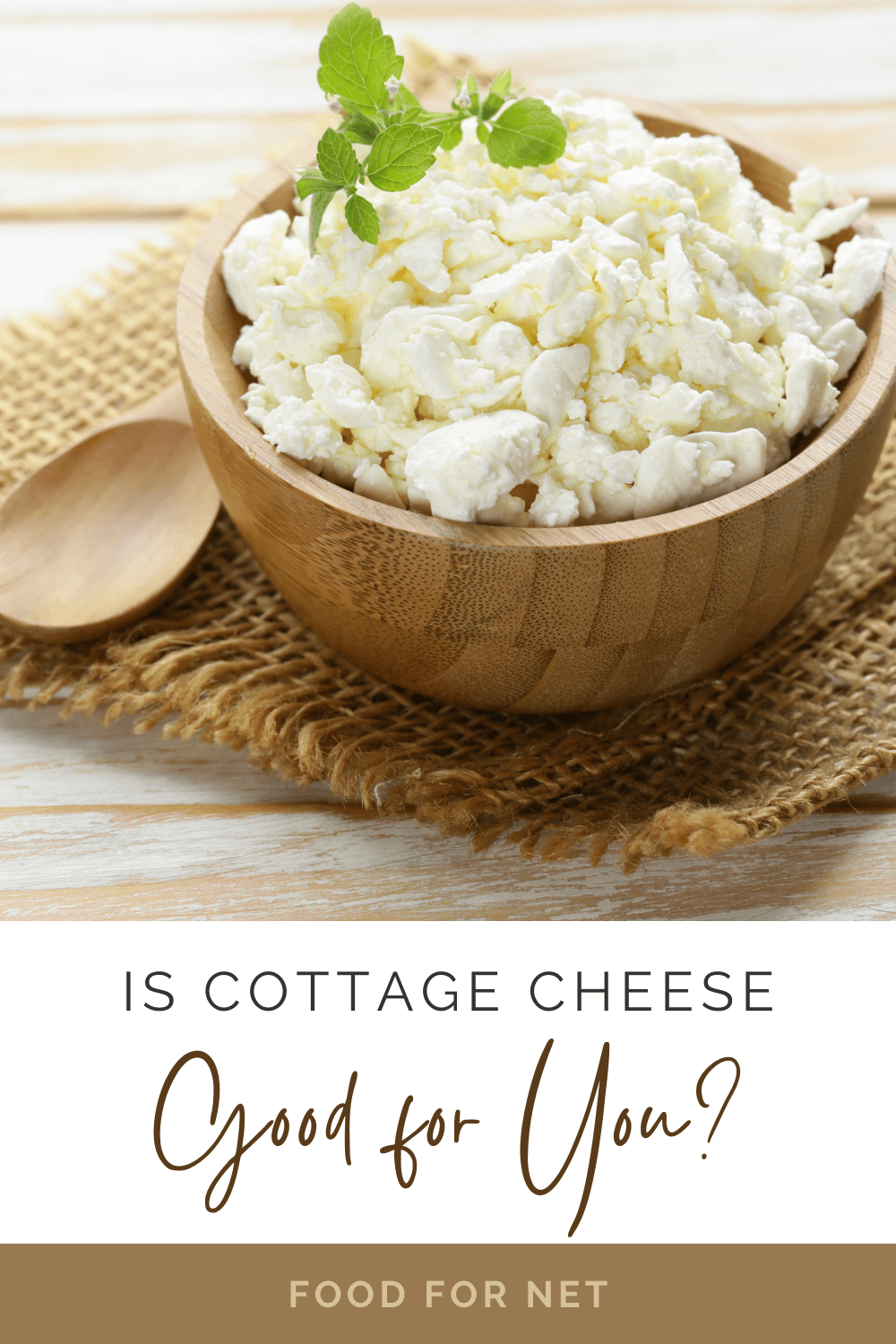
Cottage cheese mightn’t have the same huge following as Greek yogurt, but it’s still well-known as a type of weight loss food. It doesn’t need to be boring either, as it combines well with so many other foods and can even be used as an ingredient in recipes (like in keto cheesecake smoothies). So, how about it? Is cottage cheese good for you?
To answer that, we’re going to take a close look at the different benefits of cottage cheese, along with the problems.
We’ll also take a passing look at whether dairy is good for you. While we’ve talked about the topic before, as have countless other authors, it’s an important area to cover. After all, if you’re avoiding dairy, then cottage cheese will be a bad plan.
As you’ll see, cottage cheese does have many benefits. It’s even more powerful if you’re trying to lose weight.
Is Cottage Cheese Good For You?
- What Is Cottage Cheese?
- Is Dairy Good For You?
- Benefits Of Cottage Cheese
- The Problems With Cottage Cheese
- How To Use Cottage Cheese
- Final Thoughts
What Is Cottage Cheese?
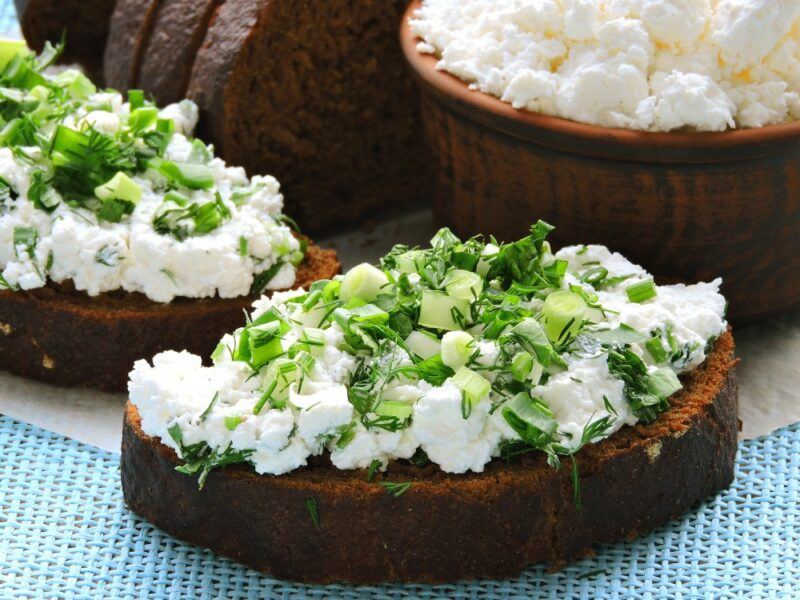
Cottage cheese is a type of fresh cheese that’s made by adding some type of acid or acid-producing culture to milk. This starts a separation process, after which the milk solids (or curds) are separated from the whey.
The curds are then drained, so that most of the whey is removed, but not necessarily all of it. Because the cheese isn’t aged at all, the flavor stays mild.
There are plenty of different types of cottage cheese to choose from, including reduced fat and full fat, flavored, different curd sizes, creamed, lactose free, whipped, or reduced sodium. With so many types, it should be easy to find the right product for your needs.
Cottage Cheese Versus Ricotta
Cottage cheese and ricotta are often confused, as they look similar. They can even be used in many of the same dishes.
There are some distinct differences though, starting with how the cheeses are made. While cottage cheese is created curds, ricotta is made using whey instead.
The textures vary too, as ricotta cheese is smooth and somewhat grainy, while cottage cheese tends to be lumpier. Cottage cheese is also lower in calories and higher in sodium.
Using cottage cheese instead of ricotta is an easy way to decrease the calorie content of some meals, like lasagna. If you’re going to do this, make sure that you strain the cottage cheese first, as cottage cheese generally contains more liquid than ricotta.
Is Dairy Good For You?
Before we talk about cottage cheese specifically, let’s address the elephant in the room. Or, more aptly, the cow in the room.
There’s no point in denying it – dairy remains incredibly controversial. It’s often highly recommended as a good source of nutrients, including calcium, vitamin A, vitamin B6, and vitamin D. Dairy also provides protein, is thought to promote bone health, and could help your health in many other ways too.
Yet, there are also some serious concerns.
Some people say dairy increases the risk of death and heart disease, is too high in saturated fat, promotes inflammation, and might increase cancer risk too. Then there are all the other concerns, like how many people are lactose intolerant and how the dairy industry is cruel.
We covered these topics in more depth in our post on whether milk is healthy. You can check out that post for further details.
The simple answer is that there’s evidence for both sides of the argument. For example, some studies suggest a link between saturated fat, dairy, and heart disease, while others don’t. Similarly, dairy might cause inflammation, but it could also decrease inflammation.
While there’s no denying that dairy foods like milk, yogurt, and cottage cheese all contain plenty of important nutrients, you can easily get those same nutrients elsewhere.
In the end, you’ll need to weigh up the pros and cons, then decide for yourself. It might help to pay attention to your how your body responds after you’ve had some dairy. If you feel bloated, lethargic, or have an upset stomach, you might need to give dairy a miss. If you feel fine, why not eat dairy regularly?
Benefits Of Cottage Cheese
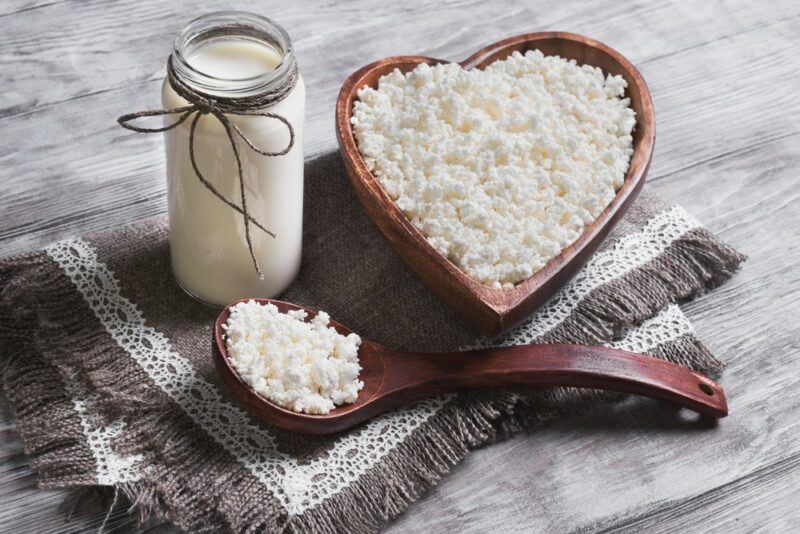
The Nutrients
There are plenty of important nutrients in cottage cheese, including riboflavin, vitamin B12, phosphorous, selenium, and folate. The most significant of these is vitamin B12, as you get more than 50% of your daily intake from a single cup of cottage cheese.
Cottage cheese is also famous for its protein content. More than 70% of the calories in cottage cheese come from protein, which is an impressive figure.
It’s A Useful Weight Loss Food
Cottage cheese is often promoted as a weight loss food, as it’s lower in calories than most other types of cheese, while also being high in protein. This combination of features works well, as the protein helps to keep you satisfied.
Indeed, high protein diets are often linked to weight loss. That’s not all. Eating high protein foods makes it easier to stick to your diet, as you’re not feeling constantly hungry.
There’s another advantage too – convenience. Cottage cheese is easy to eat and requires little prep. It’s even simpler than making scrambled eggs (and just as satisfying!).
The convenience factor can be helpful for anyone with depression too. If you’re in the midst of a low patch, preparing a meal might be too much work. But, throwing some fruit on cottage cheese? That might just be manageable.
Cottage cheese comes in various types. If you’re looking to lose weight, you may want a fat-free or low-fat version, as this keeps the calorie content down. However, lower fat versions often include more artificial ingredients, so be sure to read the ingredients label carefully.
You might even choose to stick with the full fat version. Some research suggests that full fat dairy actually promotes weight loss. Besides, full fat cottage cheese tastes better than the skim stuff.
May Help You Gain Muscle
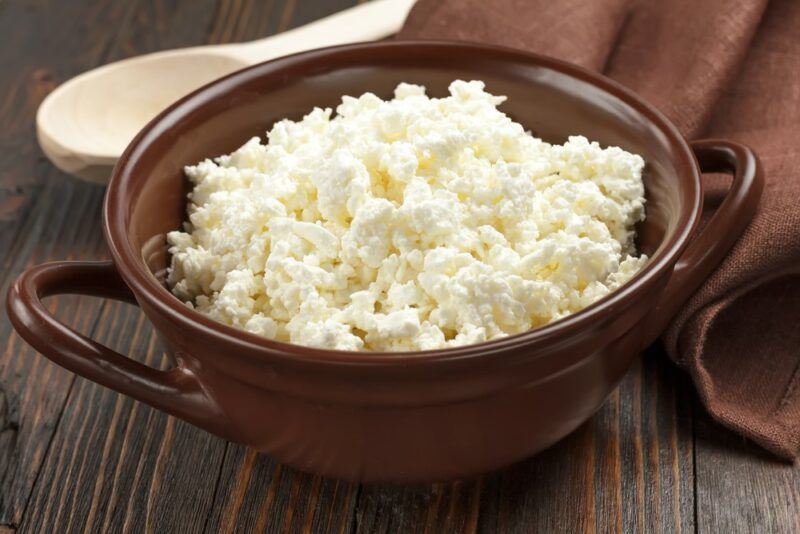
Weight loss isn’t the only reason that people turn to cottage cheese. Bodybuilders use it too because of the high protein content.
Most of the protein present is casein, which might seem surprising, as bodybuilders often focus on whey protein instead. Still, casein has its benefits, as it is slowly absorbed. This makes it very effective at preventing muscle breakdown. Plus, casein protein is still effective for muscle development.
Can Contain Probiotics
Like yogurt, some cottage cheese products contain active cultures. These healthy bacteria can help to improve your gut microbiome, potentially providing you with an array of health benefits.
Probiotics aren’t always present in cottage cheese, so you’ll need to choose the brand carefully. Look for brands that say ‘contains live cultures’ or something similar on their label.
Low In Carbs
Cottage cheese is relatively low in carbs too, as most of the calories come from protein. The exact carb content varies depending on the brand that you choose, but you’re often look at around 4 grams of net carbs in a 4 ounce serving.
While carbs may be useful in some situations, modern diets are often excessively high in carbs. Having a consistently high carb intake may lead to a variety of problems, including inflammation and even increased risk of some diseases.
The carb content here is low enough that you could even eat cottage cheese as part of a keto diet, and some people do. However, cottage cheese isn’t an ideal keto food, as the carb content is higher than is ideal and there isn’t much fat.
The Problems With Cottage Cheese
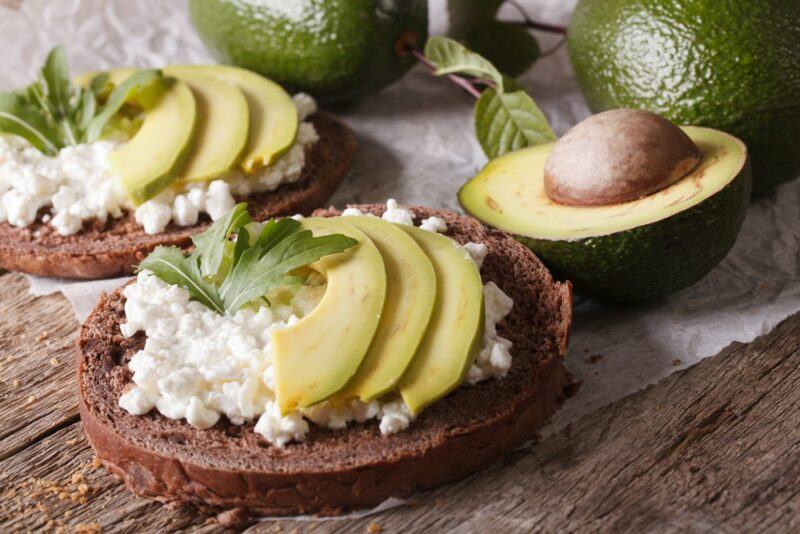
We’ve already talked about the potential issues with dairy, so we’ll skip past all of those. What else about cottage cheese can make it unappealing?
The Texture
One issue is the texture. This is often the entire reason that people avoid cottage cheese. Some people claim that it looks like baby food. When you combine that observation with the lack of flavor, cottage cheese starts to seem pretty unappealing.
People’s concerns about the texture of cottage cheese aren’t misplaced. The texture really is odd and can take some getting used to. Still… you don’t need to use cottage cheese as is. You could easily include it in a recipe, where the texture doesn’t end up noticeable at all.
Its Reputation
Another problem is simply how we see cottage cheese. It’s easy to think of it as bland and boring. Most of us also assume that cottage cheese is much less nutritious than Greek yogurt. But, while Greek yogurt is the new kid on the block, cottage cheese has plenty going for it.
Indeed, both options are rich in protein and contain most of the same nutrients.
Cottage cheese manufacturers are starting to branch out too, offering new flavors, smoother textures, and active cultures. You end up with many of the same benefits as Greek yogurt – without Greek yogurt’s tanginess.
Added Ingredients
Some cottage cheese products rely on additives to help stabilize them or provide color, texture, or sweetness. Paying attention to the ingredients label can help you to find natural products that use few additives.
In fact, cottage cheese itself only needs a few ingredients: milk, the acid, cream, and salt. That’s it.
The Sodium Content
Cottage cheese does, unfortunately, contain a decent amount of salt. The exact amount varies depending on the brand, but you’re often looking at 30% of your daily salt intake for a cup of cottage cheese.
Sodium rich foods like this can be a serious problem. High sodium intake can lead to problems like heart disease, kidney disease, and high blood pressure. Plus, many of us are already consuming more sodium than we should be.
If your sodium intake is already high, you may need to cut down on other sodium rich foods before you start eating cottage cheese regularly.
Thankfully, there are also some low sodium or sodium-free versions of cottage cheese. These may not taste as good as the ones with plenty of sodium, but they’re better for you.
It Isn’t Amazing For Calcium
Calcium is one reason for eating dairy products regularly, but you won’t get much calcium from cottage cheese. This is because most of the calcium is in whey, which is drained off when cottage cheese is made.
Related Content
How To Use Cottage Cheese
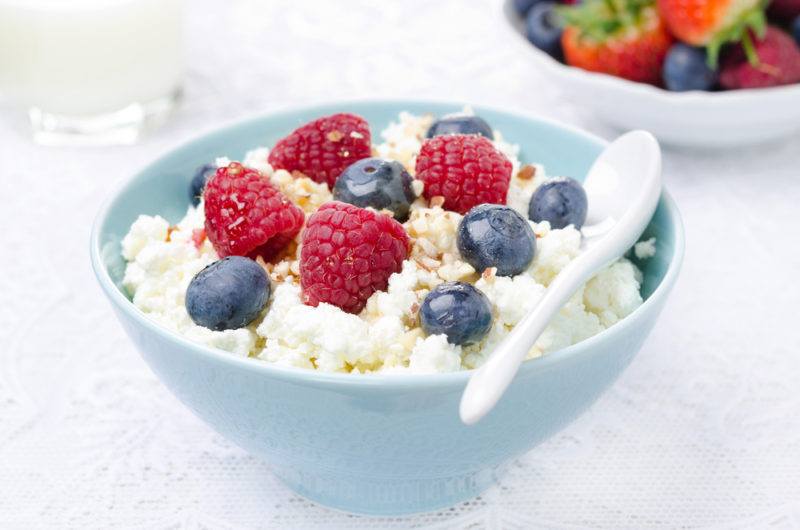
Cottage cheese has a subtle flavor, which can make it seem boring. However, the lack of flavor isn’t always a bad thing, as it means you can pair cottage cheese with countless other ingredients, including sweet and savory versions.
For example, plenty of recipes use cottage cheese to provide extra protein and sometimes a creamy quality. Why not try a baked penne recipe using cottage cheese or perhaps a dip? It’s even possible to make cottage cheese ice cream.
Or, to keep things simple, try spreading cottage cheese on bread or crackers, then add some interesting toppings. Fresh tomatoes are a common choice here, but honestly, the sky is the limit. Some combinations I’ve seen include kiwis and walnuts, salmon and cucumber, sliced peaches, sliced cucumber, and pears with honey.
Final Thoughts
Cottage cheese has plenty of benefits. The balance of protein to calories makes it an excellent choice for weight loss, especially as you can pair it with so many other flavors. You can even use sweet or savory toppings. It’s unusual to find an ingredient that’s so versatile.
There are plenty of types to choose from too, including some that even contain probiotics.
The biggest problems are the familiar controversies that surround milk and fat from dairy. However, as we’ve discussed, the evidence for these issues is mixed. If you can tolerate lactose, then dairy could easily be good for you.
Finally, there are some issues related to added ingredients or too much sodium. These are easy enough to get around if you simply choose your product carefully. Look for reliable brands that are up-front about their quality control methods.
Frequently Asked Questions
What Does Cottage Cheese Taste Like?
Cottage cheese doesn’t have a strong flavor. It’s a little like yogurt, except that yogurt has some sour notes that cottage cheese often lacks. Some cottage cheese products are slightly sweet, while others have a little saltiness instead.
The flavor is strongly influenced by the amount of milk fat. High fat versions of the cheese have a strong milky flavor, while low fat ones have a little more sourness.
Regardless of the type, cottage cheese doesn’t taste like it smells. This is important, as the cheese smells much like spoiled milk, which is enough to put some people off it.
Is Cottage Cheese Keto Friendly?
Cottage cheese isn’t ideal for keto, as it contains a decent amount of carbs, while the fat content is pretty low. However, the carb content is low enough that you can sometimes include it on a keto diet, as long as you watch your serving size.
In particular, you’re often getting around four or five grams of carbs per half cup serving of cottage cheese. If this is still too many carbs for you, you could easily have a quarter cup serving instead.
Is Cottage Cheese Fermented?
Cheese starts off as milk that has active cultures added to it. As a result, all cheese goes through fermentation. This is what produces the textures and flavors that we’re familiar with.
However, this doesn’t guarantee that cottage cheese will give you probiotics. You’ll need to check the ingredients label to find brands that include probiotics. Look for the terms ‘live cultures’ or ‘active cultures’. These are indications that live microbes are present.
Is Cottage Cheese Good For Diabetics?
Cottage cheese can be fantastic for diabetics, as the high protein content helps to keep your blood sugar levels in check. The cheese is also lower in carbs than yogurt or milk, which makes it even more powerful.
Just watch out for the sodium content, as some brands are particularly high in sodium. This is concerning, as heart disease is a known complication of diabetes and excessive sodium intake can raise the risk of heart disease.
Looking for low sodium versions allows you to get the most benefits from cottage cheese, while keeping the risk low.
Is Cottage Cheese Spoiled Milk?
In some senses, yes, cottage cheese is a form of spoiled milk. The same is true for most types of cheese. However, this doesn’t mean that you can simply leave milk to spoil and end up with cottage cheese.
Instead, cottage cheese involves the use of healthy bacteria and carefully controlled processes to ensure you get a healthy product that actually tastes good.











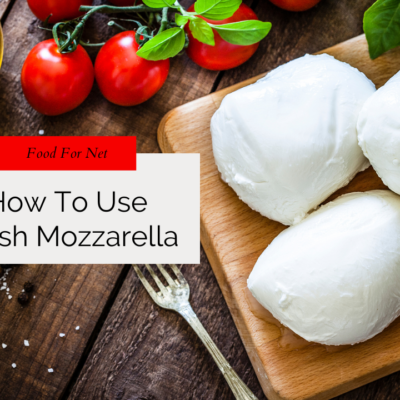





 The Best Vanilla Liqueur
The Best Vanilla Liqueur
Leave a Reply